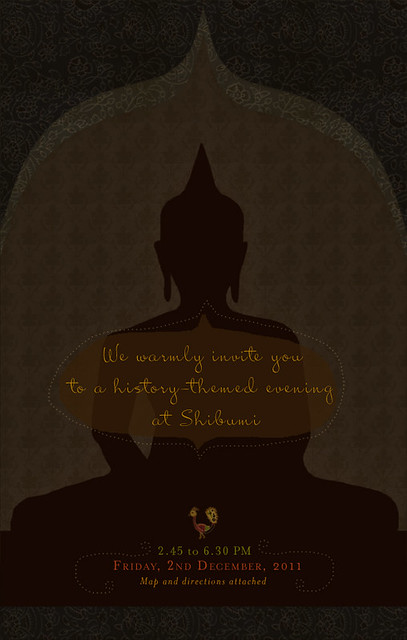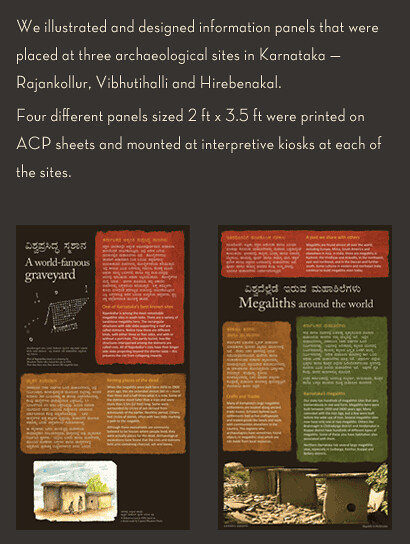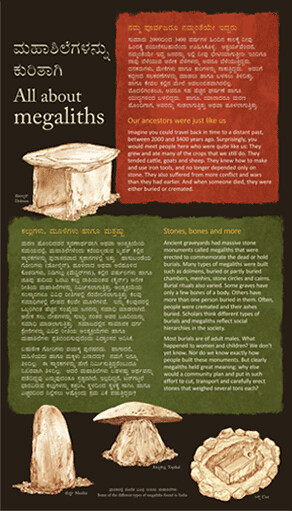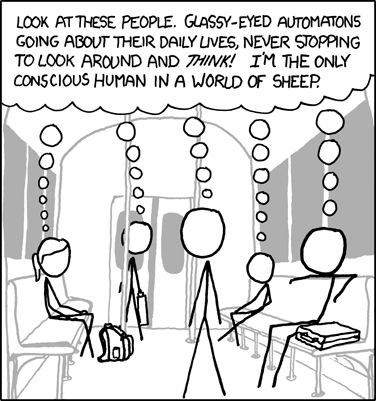
Wednesday, December 14, 2011
Thursday, December 8, 2011
Tahini–peanut butter rice and a pizza idea!
Dressing: Tahini, peanut butter (more than the tahini), mashed oven-roasted garlic (optional), oil, lemon, pepper and salt to taste – mixed well until creamy.
Okra: Broil in the oven by placing on the highest rack and setting the oven on high heat only from the top.
Eggplant: Also broiled.
Green peppers: Roasted on the stove (by tossing halves on a direct flame until blackened, then covering in cloth/paper/plastic for a few minutes and peeling off the blackened skin)
Mix the rice with the vegetables and dressing. The rice should be wet and creamy, so make sure there is enough dressing.
Note: I've been using variants of this tahini-peanut butter dressing for all kinds of things. Used it as a cheese-like topping on whole-wheat pizzas the other day. Everyone was surprised at how much they loved it! The pizzas also had a tomato sauce base, roasted eggplant and lots of oven-roasted garlic.
Thursday, September 1, 2011
Sunday, July 17, 2011
Point of View
Thanksgiving dinner's sad and thankless
Christmas dinner's dark and blue
When you stop and try to see it
From the turkey's point of view.
Christmas dinner's dark and blue
When you stop and try to see it
From the turkey's point of view.
Sunday dinner isn't sunny
Easter feasts are just bad luck
When you see it from the viewpoint
Of a chicken or a duck.
Easter feasts are just bad luck
When you see it from the viewpoint
Of a chicken or a duck.
Oh how I once loved tuna salad
Pork and lobsters, lamb chops too
'Til I stopped and looked at dinner
From the dinner's point of view.
Pork and lobsters, lamb chops too
'Til I stopped and looked at dinner
From the dinner's point of view.
Shel Silverstein
Wednesday, June 29, 2011
Recipes: Stuffed Peppers, Rice and a Stir Fry
Rice
Cook rice with salt, crushed garlic and herbs (I used rosemary and thyme).
Stuffed Peppers
Halve and deseed green peppers. Mix some of the rice with pieces of sundried tomato, olives and pickled gherkins. Roast whole cloves of garlic until well-browned and add to the mixture. Fill the bell pepper cups, pour in olive oil, and bake until the peppers are cooked and slightly browned.
Stir Fry: Soy nuggets, Sprouts and Cabbage
Soy nuggets: boiled in salted water, squeezed dry, and cut into thin strips.
Cabbage: cut into thin strips
Mung sprouts
Garlic: Minced
Sauces: I used soy sauce and a roasted garlic teriyaki marinade.
Cook the garlic in oil, add sprouts and the sauces, cook on high heat for a couple of minutes. Add cabbage strips and soy strips, and cook until the flavours are even and the vegetables still crisp.
Cook rice with salt, crushed garlic and herbs (I used rosemary and thyme).
Stuffed Peppers
Halve and deseed green peppers. Mix some of the rice with pieces of sundried tomato, olives and pickled gherkins. Roast whole cloves of garlic until well-browned and add to the mixture. Fill the bell pepper cups, pour in olive oil, and bake until the peppers are cooked and slightly browned.
Stir Fry: Soy nuggets, Sprouts and Cabbage
Soy nuggets: boiled in salted water, squeezed dry, and cut into thin strips.
Cabbage: cut into thin strips
Mung sprouts
Garlic: Minced
Sauces: I used soy sauce and a roasted garlic teriyaki marinade.
Cook the garlic in oil, add sprouts and the sauces, cook on high heat for a couple of minutes. Add cabbage strips and soy strips, and cook until the flavours are even and the vegetables still crisp.
Monday, May 30, 2011
Sketchbook scraps: from the 'Learning with Kabir' workshop

"This is the house of love, not a bed of roses.
Cut off your head,
place it on the floor,
then come and sit in it."
Cut off your head,
place it on the floor,
then come and sit in it."

On 'nyara':
Linda Hess: The meaning is 'different' or 'other'. Utterly other. Not just different, but different from anything we can conceive.
Bits of 'Sakhiya va ghar sab se nyara':
that house is utterly other...
there's no grief or joy, no truth of lie, no field of good and evil.
there's no moon or sun, no day or night, but brilliance without light.
no wisdom, no meditation, no recitation, no renunciation, no Veda, Quran, or sacred song.
action, possession, social convention, all gone.
where that one lives, there's nothing.
kabir says, I've got it!
if you catch my hint, you find the same place --
no place.


Every day I die singing (Ashok Vajpeyi)
He said, I'm a practitioner of the most perishable art: every day I die singing. That Kumar Gandharva who was singing, that raga Tilak Kamod he sang -- both are dead. Tomorrow again Tilak Koamod will be sung, and Kumar gandharva will sing, but not the same. In music whatever has happened once, by whatever person, may happen again, by that person again, but not the same.
...
Prahladji: guru is wisdom, or a 'samajh' -- not necessarily a person.
...
We're quick to challenge the authority of a guru, of someone outside, but don't seem to challenge the authority of experience. By this I mean our own particular limited experiences, our opinions, our feelings. The importance of an unconditioned voice (Krishnamurti, the Buddha, Kabir, etc) strikes me. Merely bouncing things off each other or our experience might limit enquiry to the field of experience?
...
Kabir wasn't interested in domination.
...
Words stronger than bullets.
...
The distinction between debate and dialogue.
...
Kishori Amonkar: You render a raaga. You do not conquer/control it; you submit to it.
...
Relativising everything: there is your truth, my truth, a million truths, and therefore no truth at all!
...
"I set out to find evil and found no evil one.
I searched my own self and found no one as evil as I."
...
Art/music that arises from suffering and art that arises from silence: Is there a difference?
...
Prahladji: Teach them songs. Teach the younger ones songs about love and unity. Teach the older ones songs about the conflict in the world.
:)
...
Vishakha shared a lovely story about a leaf and a clay ball, which I will share with you through the little illustrated book I'm making for a friend! :). Here's one page:

Saturday, May 28, 2011
Thursday, May 26, 2011
Creamy Tofu Dressing
Whipped up a quick tofu salad dressing a couple of days ago that turned out delicious. There's really not much to it: blend a block of tofu (rinsed and squeezed) with fried and browned garlic (5-10 cloves, or to taste), about half an onion (raw), oil (any mild flavoured kind, or olive oil), herbs (I used home-grown fresh basil and some dry thyme), salt and pepper to taste. Add water and blend so it is the right creamy consistency.
Wednesday, May 25, 2011
A joke book for Chintan!


It all started with telling Chintan this joke, which I heard from KJ:
What did the Buddhist say to the hot dog vendor?
"Make me one with everything."...!
The Buddhist paid the hot dog vendor and the hot dog vendor moved to the next customer. When the Buddhist asked for change, the hot dog vendor said.....
"Change comes from within!"
Monday, May 23, 2011
Thursday, February 17, 2011
Come to the Edge
The book of poems Angie and I put together for Adi on his last birthday (though now a little wet and smudged). The title comes from this poem:
Come to the Edge
by Guillaume Apollinaire
"Come to the edge."
"We can't. We're afraid."
"Come to the edge."
"We can't. We will fall!"
"Come to the edge."
And they came.
And he pushed them.
And they flew.

Monday, January 24, 2011
Friday, January 14, 2011
The religious mind
“What is demanded is a fertile mind. Fertile in the sense of rich, in which a seed can grow, be nurtured, carefully watched over, a mind that is deeply enquiring, searching, looking, watching. Only that mind, exquisitely pliant, not tethered to anything, is sensitive. The fertile mind is empty, like the womb before it conceives. Can you take one thing? Take envy—understand it and go through it ruthlessly. Put your teeth into it and strip the mind of envy. Take stock of yourself, day after day, minute after minute, to ruthlessly penetrate this appalling thing—envy.”
Like a shaft of fire, penetrating, his words dispelled shadows in the within. “The mind is a vast thing. It is not a spot in the universe. It is the universe. To investigate the universe demands an astonishing energy. It is energy greater than all rockets, because it is self-perpetuating, because it has no center. This is only possible when there is an enquiry into the inner and outer movement of the mind. The inner, the racial unconscious, in which are the urges, compulsions, the hidden dark fears, is the story of man. How do you observe? How do you listen? If the observation, the listening, is direct, then you are observing negatively. Then the mind has no conclusions, no opposites, no directives. In that looking it can see what is near and what is far away. In that there is an ending. Such a mind is the new mind. It has exploded without direction. Such a mind is the religious mind.”
Then he opened up the nature of such a mind, a mind for which there has to be hard, arduous work. “But,” he said, “you cannot watch from morning till night. You cannot be vigilant, never blinking for the whole day. So play with it. Play with it lightly. To question ‘how am I to be aware’ is to create conflict. But as you are playing, you learn.
“The mind that explodes without direction is compassionate, and what the world needs is compassion, not schemes.
“The new mind is not within the field of knowledge. It is that state of creation which is exploding. For that, all knowledge has to come to an end.
“The new mind cannot come into being with authority, with masters, with gurus. With a burnt-out mind, you cannot come to the new mind. You need a fresh, eager, live mind.” He then held out the key. “What releases energy is direct perception. The greater part of the brain is the residuary animal and the remaining part undefined. We live our life in the very small part. We never investigate. Sensitivity arises when you watch a tree, bird, animal, ant. Watch how you walk, bathe, dress; watch yourself being important. If you so watch, if you so observe thought and every emotion, flowering, then the brain is very sensitive; out of that, the flowering of the mind begins. That is mutation.
“To watch, to observe everything, is to be aware of totality, never to limit any thought, to let everything flower. A mind that is completely quiet, without any reaction, is only an instrument of observation. It is alive, sensitive.
“Mutation is only possible when you have brought this about through awareness, without effort. The challenge of the present time and of every instant, if you are awake, is to respond totally to something that is new."
Like a shaft of fire, penetrating, his words dispelled shadows in the within. “The mind is a vast thing. It is not a spot in the universe. It is the universe. To investigate the universe demands an astonishing energy. It is energy greater than all rockets, because it is self-perpetuating, because it has no center. This is only possible when there is an enquiry into the inner and outer movement of the mind. The inner, the racial unconscious, in which are the urges, compulsions, the hidden dark fears, is the story of man. How do you observe? How do you listen? If the observation, the listening, is direct, then you are observing negatively. Then the mind has no conclusions, no opposites, no directives. In that looking it can see what is near and what is far away. In that there is an ending. Such a mind is the new mind. It has exploded without direction. Such a mind is the religious mind.”
Then he opened up the nature of such a mind, a mind for which there has to be hard, arduous work. “But,” he said, “you cannot watch from morning till night. You cannot be vigilant, never blinking for the whole day. So play with it. Play with it lightly. To question ‘how am I to be aware’ is to create conflict. But as you are playing, you learn.
“The mind that explodes without direction is compassionate, and what the world needs is compassion, not schemes.
“The new mind is not within the field of knowledge. It is that state of creation which is exploding. For that, all knowledge has to come to an end.
“The new mind cannot come into being with authority, with masters, with gurus. With a burnt-out mind, you cannot come to the new mind. You need a fresh, eager, live mind.” He then held out the key. “What releases energy is direct perception. The greater part of the brain is the residuary animal and the remaining part undefined. We live our life in the very small part. We never investigate. Sensitivity arises when you watch a tree, bird, animal, ant. Watch how you walk, bathe, dress; watch yourself being important. If you so watch, if you so observe thought and every emotion, flowering, then the brain is very sensitive; out of that, the flowering of the mind begins. That is mutation.
“To watch, to observe everything, is to be aware of totality, never to limit any thought, to let everything flower. A mind that is completely quiet, without any reaction, is only an instrument of observation. It is alive, sensitive.
“Mutation is only possible when you have brought this about through awareness, without effort. The challenge of the present time and of every instant, if you are awake, is to respond totally to something that is new."
-- from Pupul Jayakar's biography of J. Krishnamurti
Subscribe to:
Posts (Atom)






















